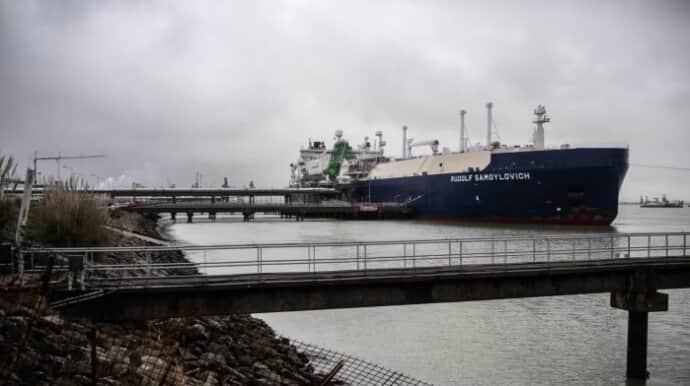Over 20% of Russian LNG is sold through EU ports – Financial Times

Despite efforts by the EU to restrict it in response to Russia's full-scale invasion of Ukraine, more than 25% of Russian liquefied natural gas that enters Europe is shipped elsewhere, expanding Russia's income. Source: Financial Times Details: Despite the UK and the Netherlands' ban on contracts for the so-called transhipment of Russian LNG, data from 2023 indicates that permitted batches of Russian gas are frequently reloaded between tankers in Belgium, France, and Spain before being exported to buyers on other continents.
Advertisement:Russia needs to move ships in order to maximise the use of its Arctic fleet.
Russian "ice class" tankers, which are utilised to transport LNG between the Yamal Peninsula and northwest Europe, typically transship between them and conventional LNG tankers. The latter are subsequently dispatched to other ports, allowing the "ice class" vessels to return to the north. "Ports in Belgium, Spain and France still receive significant volumes from the Siberian plant Yamal LNG, whose biggest shareholders are Russia's second-largest natural gas producer Novatek, China National Petroleum Corporation and the French energy company TotalEnergies.
Of the 17.8bn cubic metres of Russian liquefied natural gas flowing to the EU between January and September this year, 21 per cent was transferred to ships destined for non-EU countries including China, Japan and Bangladesh..." While EU sanctions do not apply to Russian gas, as they do to coal and oil, member states are mandated by the European Commission to phase out Russian fossil fuels by 2027. Lead energy analyst at IEEFA Ana-Maria Jaller-Makarewicz observed that although LNG transshipments in Europe have decreased since Russia's full-scale invasion of Ukraine in 2022, they have remained significant and may have gone unnoticed.
"The EU is not thinking about [it] when they are talking about a ban. They don't count a transhipment," she asserted. About 40% of the supply of pipeline gas was previously imported by the EU, totalling 155 billion cubic metres.
The bloc has greatly increased its imports of liquefied natural gas from nations like Qatar, the United States, and Norway in order to replace this gas. However, this year the EU also plans to import unprecedented amounts of supercooled fuel from Russia. Politicians from the EU justify the continuation of imports from Russia by citing long-term agreements signed even prior to the conflict, the termination of which would compel European businesses to make restitution to Russia.
For instance, Yamal and the Belgian gas company Fluxys have a 20-year contract that ends in 2039. The Belgian energy ministry asserted it was "determined to tackle this issue" and was "gathering intelligence on effective approaches". "We recognise the importance of finding a way that does not endanger the security of supply of the European continent," the ministry spokesperson added.
Support UP or become our patron!